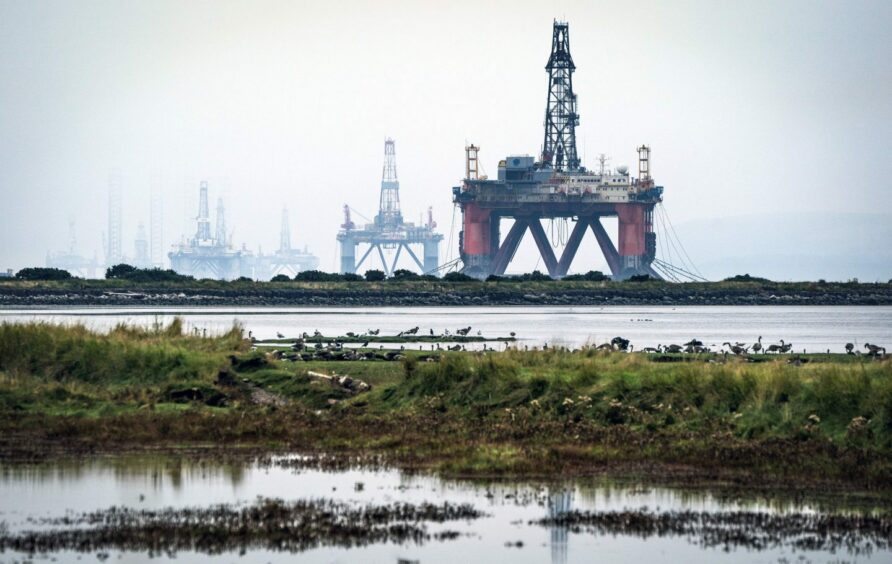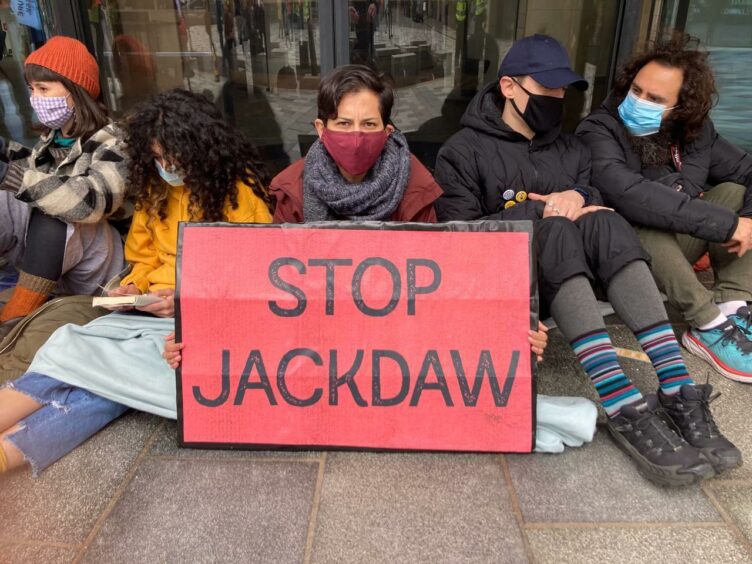
Amid growing challenges to new projects, recent judgements raise questions over whether courts will consider the downstream impacts of oil and gas developments.
Addressing the Offshore Energies UK (OEUK) legal conference in Aberdeen on Thursday, John MacGregor KC, an advocate with Axiom Advocates, said the matter was “well settled in 2021, but less so by the time we get to 2023.”
“There has been a shift in what claimants and appellants are saying. There is a shift to the very pithy statement that oil is the project, so if oil is the project you need to consider that oil at the point of extraction and also when it moves downstream,” he explained.
He drew attention to a range of cases which highlight this shift, beginning with Greenpeace’s unsuccessful appeal in 2021 against the development of the Vorlich field. This sought to argue that drilling had been approved without taking into account the climate impacts of using or burning the oil produced.
In a ruling in the Court of Session at the time, Lord President Lord Calloway said it would “not be practicable… to conduct a wide-ranging examination into the effects, local or global, of the use of that fuel by the final consumer.”
This has tended to be the view of courts when considering challenges against Environmental Statements – documents which consider the direct environmental consequences of a project, in this case drilling and producing oil and gas.
“The concept of ‘the project’ and the direct and indirect effects of the project have traditionally simply been the drilling and extraction, not any downstream impacts,” Mr MacGregor affirmed.
“Historically that was a hard-edged legal question – downstream emissions simply didn’t have to be considered.”
Indeed, this process makes it “nearly impossible” to challenge new oil and gas developments on climate grounds, Aberdeen University lecturer Dr Daria Shapovalova said last year.
Yet recent developments suggest this may not always be so.
“What we see through the cases is an emerging concept of there being an elasticity in that concept – moving away from this hard-edged legal question to one of discretionary judgement,” Mr MacGregor said.
Hard cheese
In particular, he pointed to an Irish Supreme Court case involving an attempt to overturn planning permission for a cheese factory – a surprise left turn for the energy lawyers in the room.
While the appeal was unsuccessful, in his judgement Justice Hogan acknowledged that there may be “special and unusual cases” where the causal connection between certain off-site activities and the operation and construction of a project is “demonstrably strong and unbreakable.”
In those particular cases he suggested the “significant indirect environmental effects” of these would fall in scope for identification and assessment under environmental impacts.
It is this ruling which introduces what Mr MacGregor characterised as “a lack of certainty” over the nature of environmental assessments – and whether similar views could be taken in proceedings over the impact of new oil and gas drilling.
Another case – Finch v Surrey County Council – is yet to be decided, but he suggested the industry would should “watch this space” to see what impacts, if any, the judgement is likely to have.
“It will be interesting to see if the Supreme Court reverts to a very simplistic reading of what ‘project’ means…or whether there is an acceptance of the slightly wider view that the Court of Appeal has adopted,” he added.
It comes as campaigners indicated they may challenge the decision to allow development of the Rosebank field, hours after news of its approval dropped on Wednesday.
At the same time, Greenpeace and Uplift are also awaiting the results of a judicial review over the government’s plans to continue offering licences for North Sea oil and gas exploration.
However, Mr MacGregor said more general challenges to government policy have “tended to have short shrift” with courts, due the wide discretion given to political decisions.
More challenges to come?
More widely, legal experts suggested the Prime Minister’s recent rollbacks on net zero policy could also foment further litigation, as campaigners attempt to drive faster action on climate change.
Nigel Brook, a partner with Clyde & Co said the firm has tended to see “bursts” of climate change litigation in the US during Republican administrations, as campaigners use the courts to pressure politicians.
“I think we’ll see some of that in the UK as well. Certainly on specific decisions we’re seeing this already – approvals and so on being challenged by activists,” he added.
Recommended for you

 © Supplied by Uplift
© Supplied by Uplift